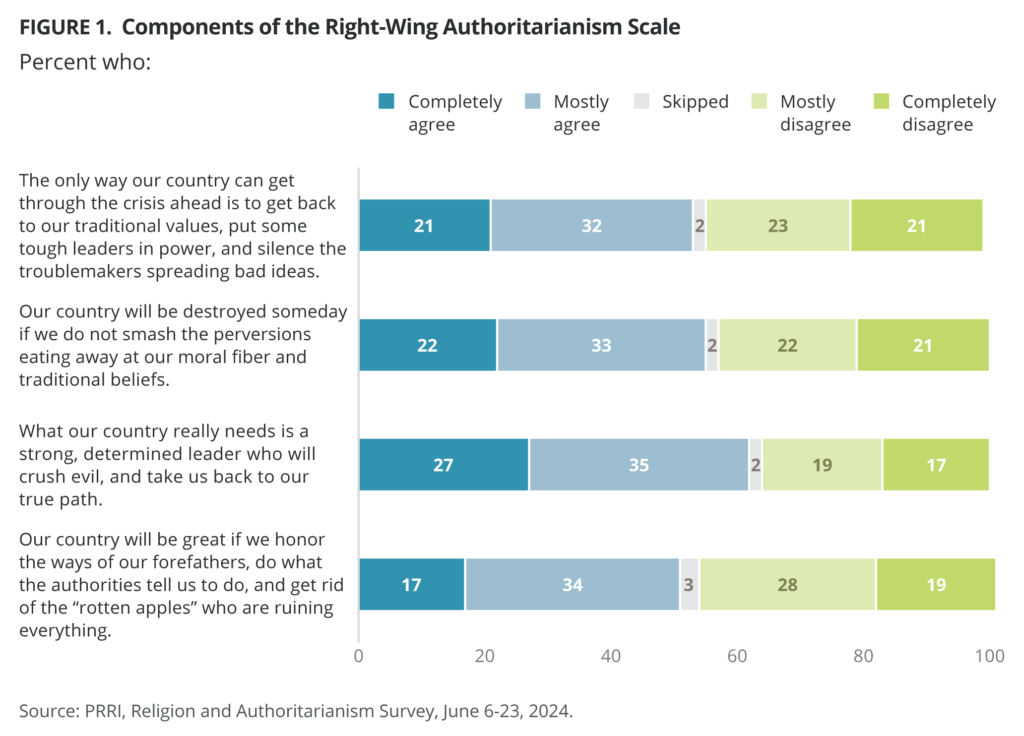
Executive Summary
Growing concerns about the appeal of an authoritarian leader in the United States led PRRI to conduct a new survey of more than 5,000 Americans that revisits long-established measures of authoritarianism and their relationships to Christian nationalism, examines Americans’ commitment to democratic values and willingness to accept political violence, and explores how authoritarian attitudes are linked to views about immigrants and immigration, cultural change, gender roles, and patriarchy.
Relying on two classic approaches to measure authoritarianism, PRRI finds that most Americans do not hold highly authoritarian views.

- Revisiting work first developed in The Authoritarian Personality (1950) and later adapted into the Right-Wing Authoritarianism Scale (RWAS), PRRI finds that 43% of Americans score high on the RWAS, compared with 37% who score low; two in ten Americans qualify as having mixed opinions (20%).
- Around four in ten Americans (41%) score high on an alternative measure of authoritarianism (CRAS) that relies on child-rearing preferences and is less closely associated with conservative political ideology. This is a drop from 57% of Americans who scored high on the CRAS in a previous […]










